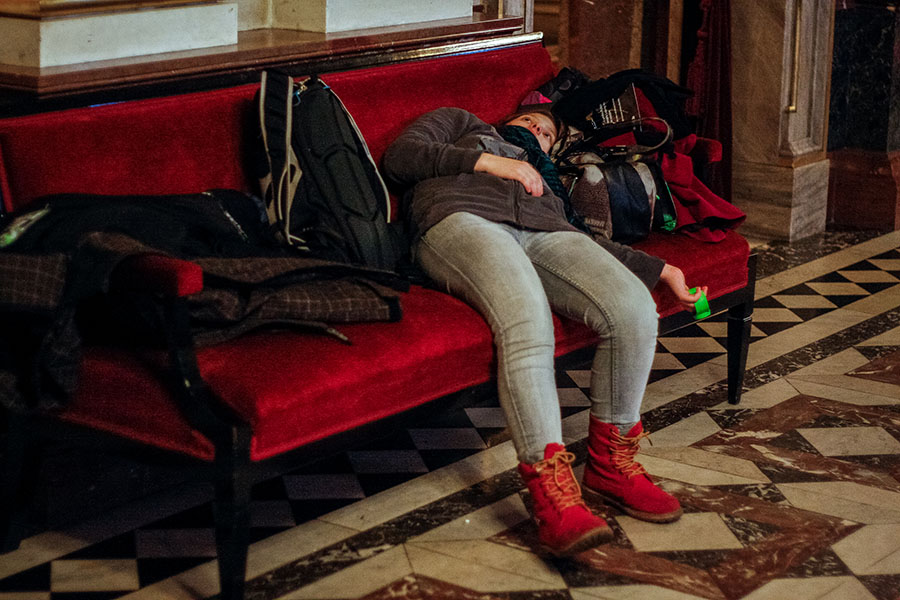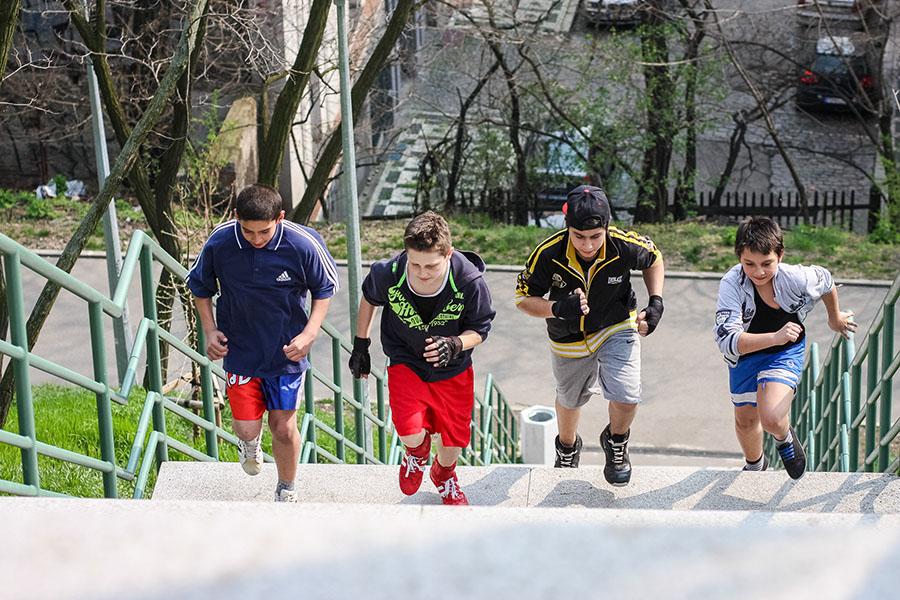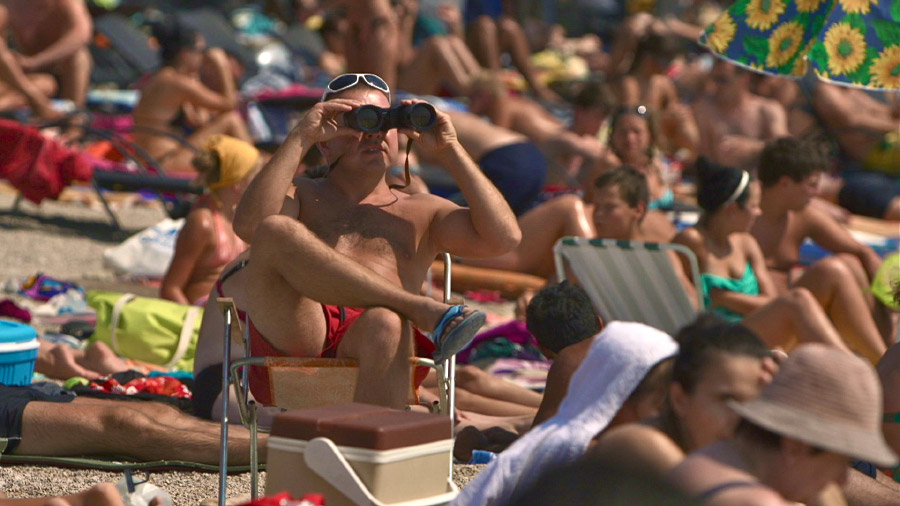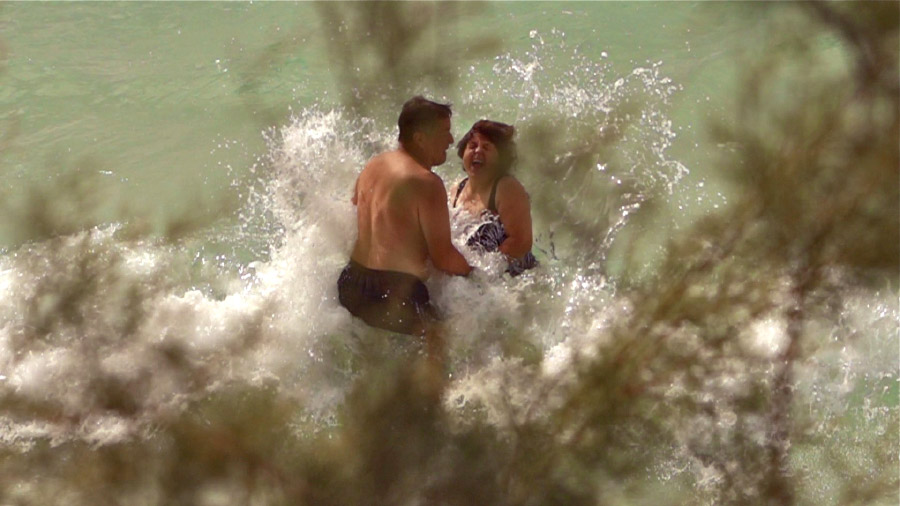Is CT2 a “Cultural Channel”?
The CT2 channel has earned the reputation of a “cultural channel” already before its programme change. A look at its current programme offer, however, gives the impression of a characteristic compromise. Heavy programming items are constantly interspersed with lighter subjects, or possibly entertainment shows, to retain less demanding viewers. Viewer ratings are supposedly not a priority of CT2, however, they are not completely irrelevant either. I do not mean to polemicize with this policy. After all, I am aware that one cannot put on heavy stuff from morning to late night. However, to me, the most attractive element of CT2 is represented by documentaries.
In the spring of this year, I have watched the series Sweat, Tears and Hopes dealing with children’s efforts to break through in the fields of figure skating, playing the violin or boxing. The series dutifully captures the circumstances characteristic of each hobby, meeting the expectations indicated in the title. However, it says nothing about what the protagonists really expect from the road they have taken, about their inner worlds, about the sweat and tears that do not have a physical form. To me, it was a standard documentary performance typically achieved by Czech filmmakers, without any surprise. It has only confirmed what I knew already.
 |
 |
 |
 |
Sweat, Tears and Hopes
Czech Journal
There are a great many viewers who do like such an approach, however, the making of such works will not justify the existence of CT2. In my opinion, its most essential purpose lies somewhere else than in verifying known truths or lashing out at negative phenomena. Young documentarists Vít Klusák and Filip Remunda were the initiators and main filmmakers of the Czech Journal series broadcast in the past year. They were inspired by events which made an impact in 2012. The second season of the series was opened in the spring by the former filmmaker and his documentary “Tabloid Workers”. It has received a lot of criticism from experts. In my opinion, however, Klusák did not strive for a rejection of capitalism, as one of the critics claimed. He has made a revealing portrait of a man and a woman who make a living from tabloid journalism, offering an authentic testimony of the personality disintegration of people who do the job.
In his documentary “Naked Nation”, Filip Remunda has captured Czech holidaymakers in Croatia; while maintaining an ironic tone, he resisted the temptation of a superficial commentary. He has managed to stay on top of things, trying to understand the situation without making a corrective critical point. Director Karel Žalud went among miners to make a film about a mine that is not prospering. His documentary “I, Miner” proves his fascination with the mining “landscape”. Its message is forceful, and thus different from a mere illustration of general knowledge.
In his film “The Crime of Mr. Chytil”, Ivo Bystřičan has introduced a subaltern officer who has been sentenced in the Opencard case, while his superiors have successfully slipped out of the arm of the law. The documentary depicts the case as a story with a secret, thus producing a dramatic and thrilling effect, provoking reflection ad urging one to take a stand.
 |
 |
Czech Journal: Naked Nation (Český žurnál: Obnažený národ, F. Remunda, 2014)
Exhibition, Yet Innovative
In his rather favourable review of Czech Journal in Lidové noviny daily, Josef Chuchma has pointed out the controversial results of the deliberately subjective approach of the filmmakers. He is right in saying that some of the filmmakers were running out of breath in the course of the 52 minutes, trying to help themselves with “filler” scenes, or in mentioning the pitfalls of the anti-illusive use of two cameras, one held by the director who is asking questions and one by the cameraman. Personal engagement can easily turn into an empty self-emphasis. However, this cannot change the fact that with its innovation, accent on the singularity of the recorded situation and provocativeness, Czech Journal meets the “culture” requirement of CT2. Such documentaries make the existence of the channel legitimate, as they bring a truly revealing perspective of the given subject, exploring the contemporary man and the situations related to his activities and conflicts while risking the viewers’ disapproval, provoking, disturbing stereotypical opinion and meeting the requirement defined by UK’s BBC as innovation.
Translated into English by Tereza Chocholová


